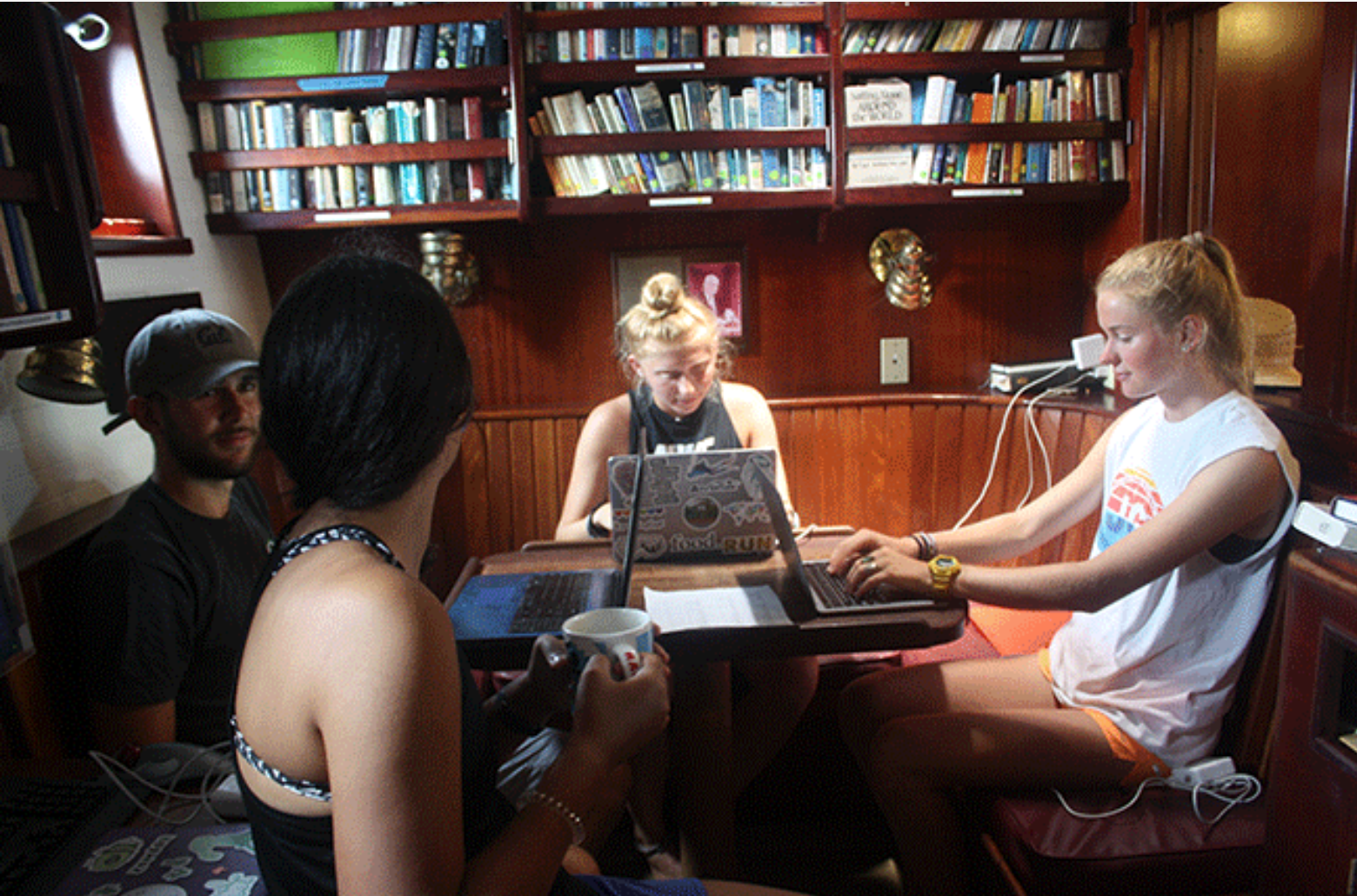News
The Changing Face of Student Health

By Virginia Land McGuire, Ed.M., Associate Dean for Financial Aid & Student Services, Associate Professor of Nautical Science
Healthy people, healthy ships. One increasingly complex aspect of our work in student services focuses on health and wellness within the Sea Education Association community. For decades SEA has managed bumps and bruises, acute infections, chronic medical issues and periodic mental health emergencies on shore and at sea. While the number of students with sports injuries, ear infections or chronic disease has remained relatively constant – and thankfully low – over time, SEA does find itself affected by the rising tide of mental health challenges facing adolescents today.
Truly, it’s hard to read anything about present-day college students without quickly arriving at the topic of mental health. Often cited as an epidemic, recent data suggests that anywhere from 29-40% of undergraduates today suffer from some form of mental health disorder. While our students and staff tend toward the hale and hearty, mental health issues are increasingly on our radar and affecting our population, with no visible downturn in sight. If we continue to enroll adolescents and young adults, we will also need to continue improving our approach to health and well-being on shore and sea.
A decade ago, 19% of SEA Semester students self-reported a mental health diagnosis. This year that number is 29%. Students arrive on campus with anxiety, depression, PTSD, panic disorders and in recovery from eating disorders. 16% of our students use a psychotropic medication. If this data is alarming, understand that by and large they do well at SEA and are able to manage without faculty or staff intervention. But sometimes a student does present with a new or exacerbated mental health challenge and we are working to be better prepared to help.
In 2017, I became certified in Mental Health First Aid. In 2019, nineteen additional faculty and staff were certified in a training hosted on the SEA campus. SEA will sponsor the training again next year and aspire to have all faculty (and as many seagoing crew as possible) trained in what to look for and how to offer immediate relief while connecting the student with additional resources and safeguarding the community. Student Services maintains a list of local mental health providers available to work with our students and December crew trainings now feature a module on managing and mitigating mental health emergencies in remote settings.
For reasons still under debate (the cost of college, the increasingly high stakes associated with success or failure in school, tightly scheduled childhoods resulting in young adults struggling to manage their own calendars – maybe college is just harder?) contemporary students report more stress than at any point in history. Nationwide, 6 in 10 college students report having felt so stressed they couldn’t get their work done on one or more occasions.
In addition to our proactive training in managing and mitigating student mental health concerns, our faculty have turned their attention to a comprehensive student workload assessment seeking to balance a degree of invigorating academic stress against an overabundance of debilitating academic stress. They’re re-thinking assignments to focus on quality of thought over page count and building in opportunities for feedback during the program in order to optimize productivity and the overall student experience.
We will continue to screen all of our students, staff, and voyagers to ensure a healthy educational environment for all of our participants. Like our sending institutions, SEA strives to create a caring, sensitive educational community in the midst of serious social and emotional challenges for our students.
Contact: Douglas Karlson, Director of Communications | 508-444-1918 | [email protected] | www.sea.edu